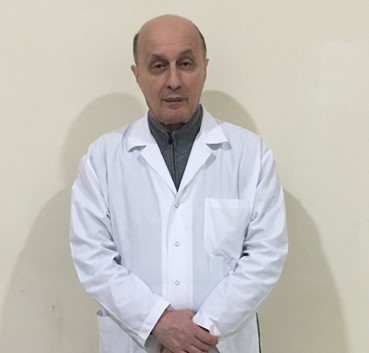Quality Assurance
At East-West University, we are committed to fostering a culture of continuous development, where quality is embedded in all aspects of university life. Accordingly, our goal is to consistently meet and exceed the expectations of our students, academic and administrative staff, and the wider community.
Our commitment to quality assurance is based on compliance with key national and international frameworks. These include the authorization and accreditation standards of the National Center for Educational Quality Enhancement, as well as international standards such as those set by the World Federation for Medical Education (WFME), the European Standards and Guidelines (ESG 2015), and other relevant guidelines.
The university’s quality assurance processes are founded on the principles of transparency, stakeholder engagement, and evidence-based decision-making. These processes are structured to be iterative and dynamic, ensuring the continuous refinement and improvement of all aspects of academic and institutional activities.
The Quality Assurance Office plays a crucial role in ensuring academic excellence, institutional effectiveness, and ongoing development by utilizing both internal and external quality assessment tools.
Internal Quality Assurance
Internal quality assessment is one of our university’s core responsibilities. To ensure its effective implementation, the Quality Assurance Office regularly evaluates educational programs, the learning process, research activities, and various university services. Periodic surveys and analyses of students, academic staff, employees, and external stakeholders are conducted to support decision-making and enhance both academic and administrative functions. This data-driven approach allows us to make well-founded decisions and respond to challenges in a timely manner.
The QA Framework is based on several core principles that reflect the university’s commitment to quality, transparency, and accountability. These principles are:
- Continuous Improvement: A commitment to regularly assessing, refining, and enhancing programs and services to meet the evolving needs of students, faculty, and the wider community.
- Stakeholder Engagement: Actively involving students, faculty, staff, employers, alumni, and external bodies in the QA process to ensure diverse perspectives and input into decision-making.
- Evidence-Based Decision Making: Utilizing data, feedback, and empirical evidence to guide quality assurance processes, identify areas for improvement, and inform and follow-up strategic initiatives.
- Accountability and Transparency: Ensuring that QA processes are open, transparent, and provide clear accountability for all actions and outcomes, fostering trust and confidence in the university’s operations.
- Alignment with National and International Standards: Adhering to the standards set forth by national accreditation bodies such as the National Center for Educational Quality Enhancement (NCEQE), as well as international standards such as those set by the World Federation for Medical Education (WFME) and the European Standards and Guidelines (ESG).
Regulatory Documents for Quality Assurance:
- Quality Assurance Policy;
- Rule for Planning, Developing, Improving and Termination Educational Programs
- Methodology for Defining and Assessing Learning Outcomes of an Educational Program.
Quality Assurance Office Reports
External Quality Assurance
External evaluations play a fundamental role in ensuring the reliability, quality, and continuous improvement of the university’s educational programs and institutional activities. These assessments serve as a key mechanism for evaluating the university’s compliance with national and international standards and ensuring that its academic programs meet the expectations of stakeholders, including students, academic staff, regulatory bodies, and the broader community.
Authorization
Higher education authorization is an external quality assurance mechanism carried out by the National Center for Educational Quality Enhancement (NCEQE). The purpose of authorization is to conduct an institutional evaluation of an educational institution and determine its compliance with authorization standards. The authorization process is conducted in accordance with the Standards and Guidelines for Quality Assurance in the European Higher Education Area (ESG 2015).
Based on Decision No. 26 of July 26, 2019, by the National Center for Educational Quality Enhancement, East-West University was granted the status of a higher education institution for a period of six years.
For more details, see the link: Authorization
Accreditation
Accreditation is an external evaluation mechanism that assesses the compliance of higher education programs with accreditation standards. It aims to enhance educational quality by ensuring alignment with these standards, promoting systematic self-assessment within institutions, and fostering the development of quality assurance mechanisms. External evaluations are conducted by the National Center for Educational Quality Enhancement (NCEQE).
Based on Decision No. 936106 of August 23, 2022, by the Accreditation Council for Higher Education Programs of the National Center for Educational Quality Enhancement (NCEQE), the one-cycle educational program in Medicine (English-language) at East-West University LLC has been granted accreditation for the duration of the cluster.
For more details, see the link: Accreditation.
Peer Review
External quality assurance processes involve the formal evaluation of a program or institution by external local and international experts. This evaluation is conducted in accordance with the standards set by the relevant national or international agency to support the future development of academic programs or institutions.
For more details, see the link: MD Program External Evaluation.
Recognition
Our university is internationally recognized by leading medical organizations, ensuring that our graduates receive a globally competitive qualification and have the opportunity to pursue medical careers worldwide.
- World Directory of Medical Schools (WDOMS): Our medical school is listed in WDOMS, confirming its compliance with international medical education standards. (See listing)
- National Medical Commission of India (NMC): Our university is recognized by the NMC, allowing graduates to practice medicine in India. (More information)
- Educational Commission for Foreign Medical Graduates (ECFMG): Our graduates meet ECFMG accreditation standards, enabling them to undergo the licensing process in the United States. (More information)











